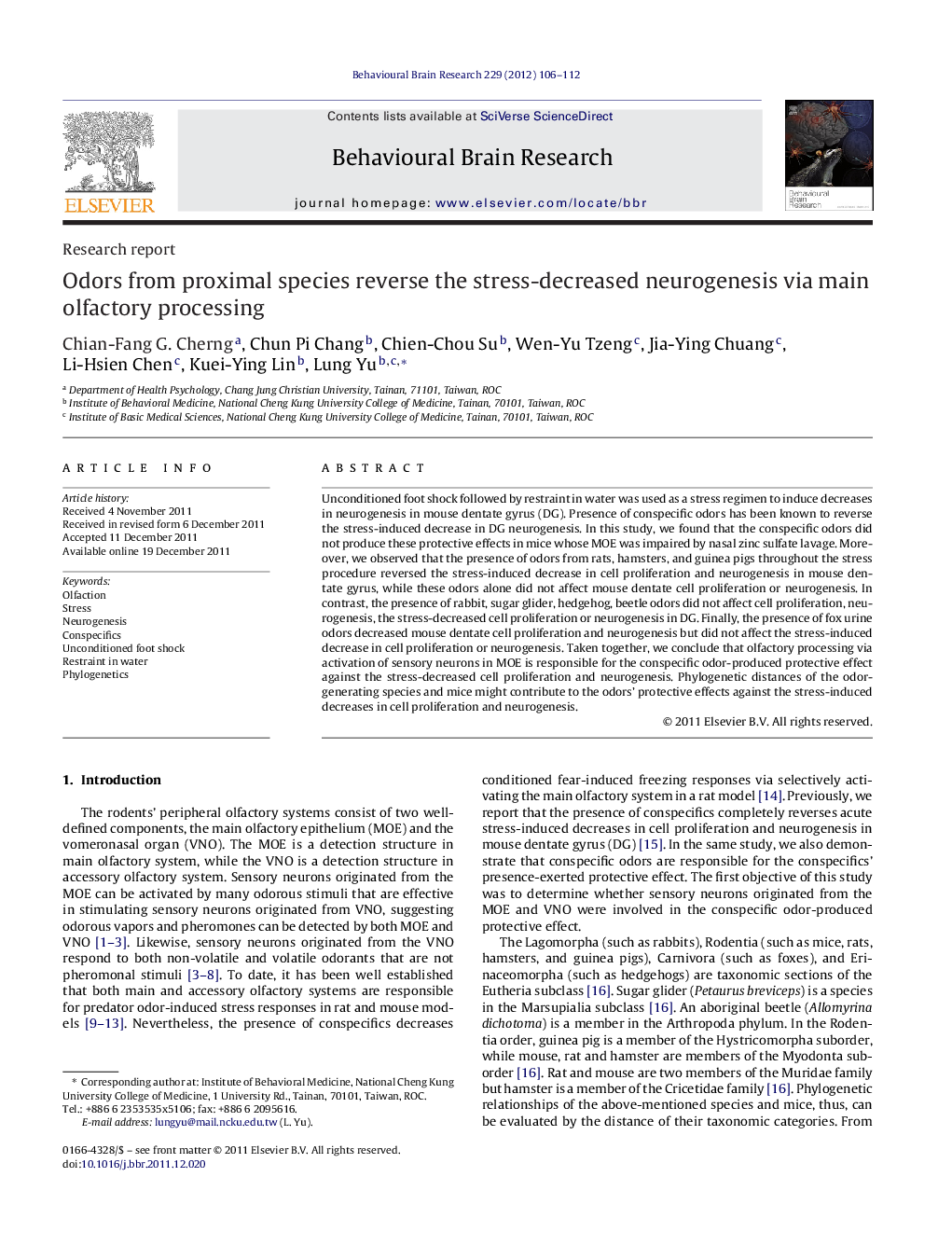| Article ID | Journal | Published Year | Pages | File Type |
|---|---|---|---|---|
| 4313349 | Behavioural Brain Research | 2012 | 7 Pages |
Unconditioned foot shock followed by restraint in water was used as a stress regimen to induce decreases in neurogenesis in mouse dentate gyrus (DG). Presence of conspecific odors has been known to reverse the stress-induced decrease in DG neurogenesis. In this study, we found that the conspecific odors did not produce these protective effects in mice whose MOE was impaired by nasal zinc sulfate lavage. Moreover, we observed that the presence of odors from rats, hamsters, and guinea pigs throughout the stress procedure reversed the stress-induced decrease in cell proliferation and neurogenesis in mouse dentate gyrus, while these odors alone did not affect mouse dentate cell proliferation or neurogenesis. In contrast, the presence of rabbit, sugar glider, hedgehog, beetle odors did not affect cell proliferation, neurogenesis, the stress-decreased cell proliferation or neurogenesis in DG. Finally, the presence of fox urine odors decreased mouse dentate cell proliferation and neurogenesis but did not affect the stress-induced decrease in cell proliferation or neurogenesis. Taken together, we conclude that olfactory processing via activation of sensory neurons in MOE is responsible for the conspecific odor-produced protective effect against the stress-decreased cell proliferation and neurogenesis. Phylogenetic distances of the odor-generating species and mice might contribute to the odors’ protective effects against the stress-induced decreases in cell proliferation and neurogenesis.
► Main olfactory epithelium is required for odor-mediated anti-stress effect. ► The vomeronasal organ plays a negligible role in odor-mediated anti-stress effect. ► Odors from rats, hamsters, and guinea pigs exert anti-stress effect. ► Odors from phylogenetically distant species do not display anti-stress effect.
